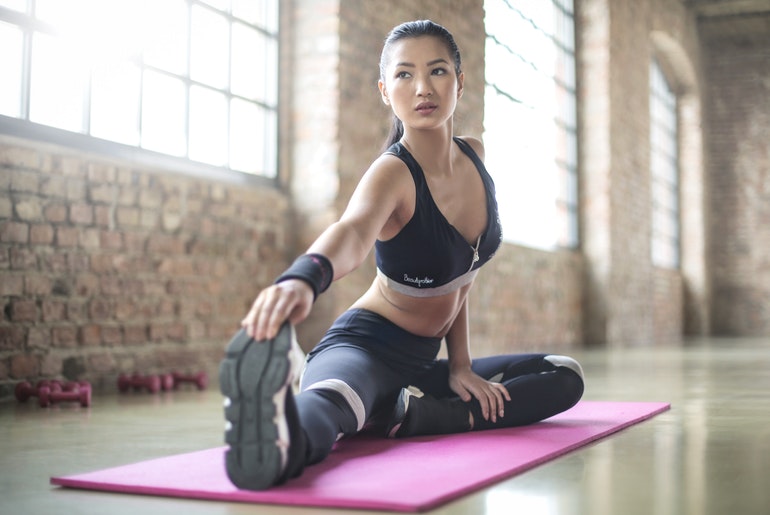It͛’s not the load that breaks you down, it͛s the way you carry it͛. Lou Holtz – American Football Coach
Too often we equate exercise with expensive gym memberships and highly sculpted bodies running around in leotards and tank tops and lifting weights and posing on balance balls. If that is your scene, go for it. But if you don’t feel comfortable in such an environment, you still have lots of options to get into the fitness game. You can get your positive endorphins flowing just by playing sports in your neighborhood, washing your car, running on the treadmill in your basement or pulling weeds out of your back garden. You can stroll, walk, jog or spring around your neighborhood. You can hike country trails, go rock climbing or take up just a nightly thirty-minute walk.
The Mayo Clinic experts advise us that engaging in exercise helps alleviate stress in a number of ways besides increasing feel good hormones. It helps you gain confidence that you can meet your goals; it takes your mind off the things that stress you, it helps you socialize with others and that is encouraging. It helps you cope because of the positivity it creates.
Everyone’s excuse is that they are too busy to mark a specialized time for exercise on their calendar. But there are lots of ways to add movement and exercise to your life in small bursts at a time. It can be as simple as parking far away from the door of the building you need to enter, taking the stairs instead of the elevator, or walking to work instead of driving. Even if you do a desk job, you can make yourself get up every half hour and just move a little. Walk to the washroom or water cooler, do a couple of deep knee bends and then resume your work. If you are doing housework, move briskly around the house, taking as many steps as possible. Dance with your vacuum cleaner and mop. Mow your own lawn, sweep your own stairs. Pull weeds, stack wood, and tackle as many physical chores as you can handle.
Nobody can help feeling stressed if their day includes eight to ten hours sitting at a desk, two or more hours driving in a car or on a train, and then polishing it off with a spell of sitting and watching television. Our bodies and brains weren’t built to function that way.
Train yourself to relax Besides learning to live mindfully, it is worthwhile learning special relaxation techniques to combat the negative effects of stress on your body. Two of the best programs that can be worked into any lifestyle are yoga and tai chi. Yoga is a 2,000 year old practice that unites the body and mind in a series of controlled breathing and stretching exercises that promote relaxation and reduced stress. Its name comes from the Sanskrit word meaning union. Besides helping you to reduce anxiety and stress, regular yoga practice leads to improved flexibility and balance.
If you decide to use yoga as a method of stress reduction, you can teach yourself but you would be better off enrolling in a class in your neighborhood. Be sure to ask if the course you are signing up for is suitable for beginners: you want to get off to a good start and not become discouraged just trying to learn the basics. If you are essentially healthy, although stressed, you can likely pick up yoga easily and make it part of your daily routine. You should notify your doctor of your intention to take up yoga if you are pregnant, suffer from balance issues, or have other serious health conditions like osteoporosis, a herniated disk or eye conditions such as glaucoma.
No matter the kind of yoga you embrace, always remember that you are the writer of your own body manual. If a pose is too difficult to sustain, you don’t have to do it. Explore what works for you. Tai Chi also focuses on mind and body Tai Chi is a slow and gentle routine also focused on uniting your movements with your mind, leading to stress reduction and enhanced energy capacity. It is best to start it as part of a class as well. Normally classes are offered over a 12-week period to allow participants time to learn specific movements and practice until they can do them seamlessly as part of a daily routine. Once you have learned the basics, you can make your own choice about whether it will be a private experience or public one for you. Proponents of tai chi generally try to practice their routine at the same time each day, but if your life is too hectic, you can work it in whenever it is possible and still benefit greatly. Other benefits of regular tai chi practice include increasing your flexibility and agility as well as balance, and increased muscle strength.



